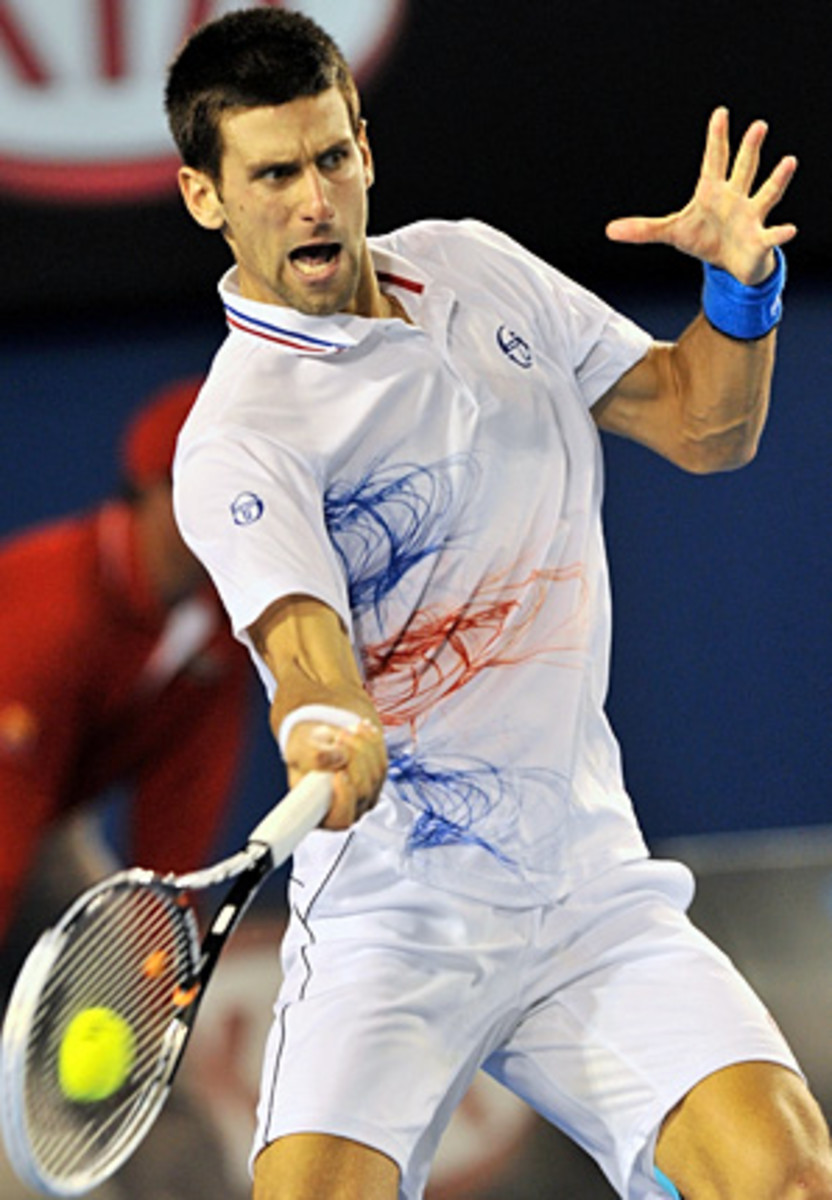Djokovic wins match for the ages
SI.com caught up with Sports Illustrated senior writer Jon Wertheim after Novak Djokovic defeated Rafael Nadal 5-7, 6-4, 6-2, 6-7 (5), 7-5 on Sunday to win the Australian Open in the longest Grand Slam final of the Open Era. The top-ranked Djokovic won his third consecutive major title and third Australian Open.
SI.com: How does this five-hour, 53-minute classic stack up against other great matches? Better than Roger Federer vs. Rafael Nadal at Wimbledon in 2008?
Wertheim: I'm biased toward that 2008 final but you could certainly make a case. As with Federer-Nadal, it's not just the duration and the quality; it's the context. So much was riding on Sunday's match. No. 1 vs. No. 2. A champion defending his turf. Nadal trying to reclaim what was once his. For them to summon this level of tennis for that long is truly remarkable.
Funny thing: On Friday night, I was speaking with Djokovic's coach, Marian Vajda, after his protégé's five-set semifinal victory against Andy Murray. Vajda said it was the best match he had ever seen Djokovic play and it might stand as the best. Two days later, we get this.
SI.com: Djokovic has defeated Nadal seven consecutive times, a streak that includes the last three Grand Slam finals. Did Nadal come any closer to solving Djokovic, or does the Serb have a permanent spot in Nadal's head?
Wertheim: He's closer, but he's not there yet. Nadal was more competitive at the 2011 U.S. Open than he was at 2011 Wimbledon. And he was more competitive here than he was at the U.S. Open. So there's progress. Clearly there's a matchup issue. With an unremarkable serve, a weaker backhand and poor court positioning, Nadal just doesn't have the weapons to beat Djokovic -- weapons that he deploys so effectively against all the other players, Federer included.
Now, of course, there's a mental component as well. Seven straight losses, with three in major finals, is a lot to bear, even for someone with Nadal's spirit. On the other hand, he came within a few points of winning on Sunday and was serving at 4-2 in the fifth set. So basically it's up to him to frame this and draw as much encouragement or discouragement as he wants.
SI.com: What was working for each player in the match? What does Nadal have to do to beat Djokovic?
Wertheim: After a patchy first set, Djokovic went into Terminator mode. He jumped on Nadal's serve. He dictated the points. More often than not, he had a positional advantage. He picked on Nadal's backhand. The last time Nadal beat Djokovic in a major, the 2010 U.S. Open final, Nadal served hellaciously and took advantage of what was then a superior heart. Djokovic is a different player now, a more courageous player. But why Nadal is serving drastically slower than he did 18 months ago (shoulder injury? a tactical decision? lack of belief?) is mystifying.
SI.com Does Djokovic enter the Greatest Of All Time debate?
Wertheim: Not yet, but he's getting there, isn't he? He has five Grand Slam titles now, which is still half of Nadal's total (10) and less than a third of Federer's (16). But the 24-year-old Djokovic has a lot of time left and his excellence at a time when Federer and Nadal are contemporaries weighs in his favor. So does Sunday's match -- maybe it should count double.
SI.com: What was the atmosphere like at Rod Laver Arena?
Wertheim: In the beginning, on the heels of two sensational men's semis, there was almost Tennis Coma. The pace of play sucked a bit of energy out of the building. So did the weird rhythms of the first two hours or so (i.e. the first set and a half). By the third set, though, it was electric. The rallies were breathtaking, sometimes resulting in spontaneous standing ovations. A knot of Serbian and Spanish fans added a Davis Cup vibe. I was so impressed by the Melbourne crowd. Well into the infomercial hours, no one had left. By the end -- we're talking past 1:30 a.m. -- the atmosphere matched the drama. Just a great sporting event.
SI.com: What does this match, and the way the semifinals played out with Nadal beating Federer and Djokovic outlasting Murray, tell us about the year in men's tennis going forward?
Wertheim: Trite as it sounds, this is a golden age. And not simply because the Big Four reliably reach the latter rounds. The dynamics and psychodynamics contained therein are really intriguing. We're talking about four guys with different games, different personalities and different sensibilities. Federer struggles with Nadal. Nadal struggles with Djokovic. Murray struggles with all three in majors, but is a fine player. Every result is significant, a new plot twist in the great ATP reality show.






